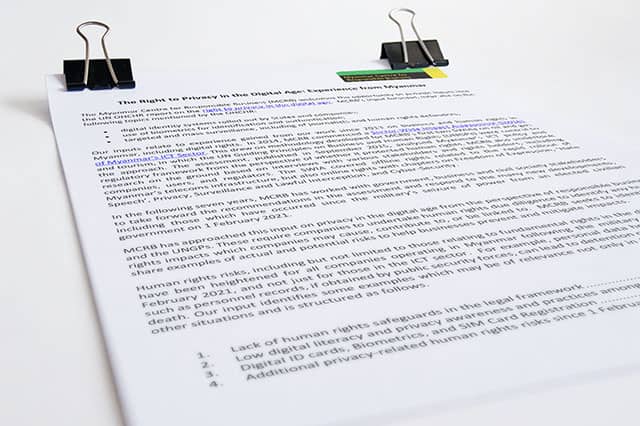Revenge Porn on the Rise

Privacy violations involving revenge pornography are on the rise in Myanmar but seeking legal remedy can be a daunting experience for victims.
Revenge pornography may seem an unlikely problem in a country with a sexually conservative culture like Myanmar but it has become increasingly common as more people use smartphones and the internet. Celebrities and ordinary citizens alike have been affected.
Victims of revenge, or non-consensual, pornography are understandably reluctant to discuss their experiences, but many people interviewed by Frontier knew of someone who had been humiliated by intimate images circulated by an ex-partner, or had heard similar stories from friends.
The Myanmar Centre for Responsible Business warned of an emerging culture of non-consensual pornography in an impact assessment of the country’s rapidly-growing ICT sector published last September.
The report warned that “when private intimate content is shared publicly, it can often go viral, spreading beyond the original platform it was posted to, leaving the victim with limited options for remedy”.
The centre’s director, Vicky Bowman, told Frontier that legislation was needed and that it should use gender neutral language.
She said one option was an amendment to the draft law prohibiting violence against women, as was suggested by the centre in its ICT impact assessment last year.
“The alternative might be to address [the issue] in a data privacy law which we have argued is long overdue but for which there is no draft,” Bowman said.
Read also
- Information and Communication Technologies (ICT) Sector and Digital Rights
- MCRB Submits Input to OHCHR on the Right to Privacy in the Digital Age
- MCRB Submits Input to OHCHR on the Practical Application of the UNGPs to the Tech Sector
- Update on Draft Cybersecurity Law and its Impacts on Digital Rights and the Digital Economy
- Myanmar’s Legal Framework For Cybersecurity Needs To Be Built To International Standards
 English
English မြန်မာ
မြန်မာ မြန်မာ (unicode)
မြန်မာ (unicode)











